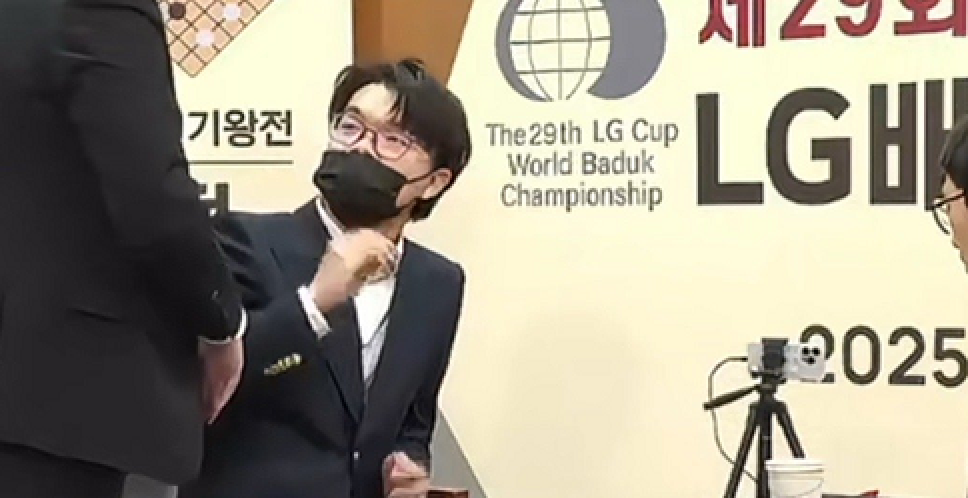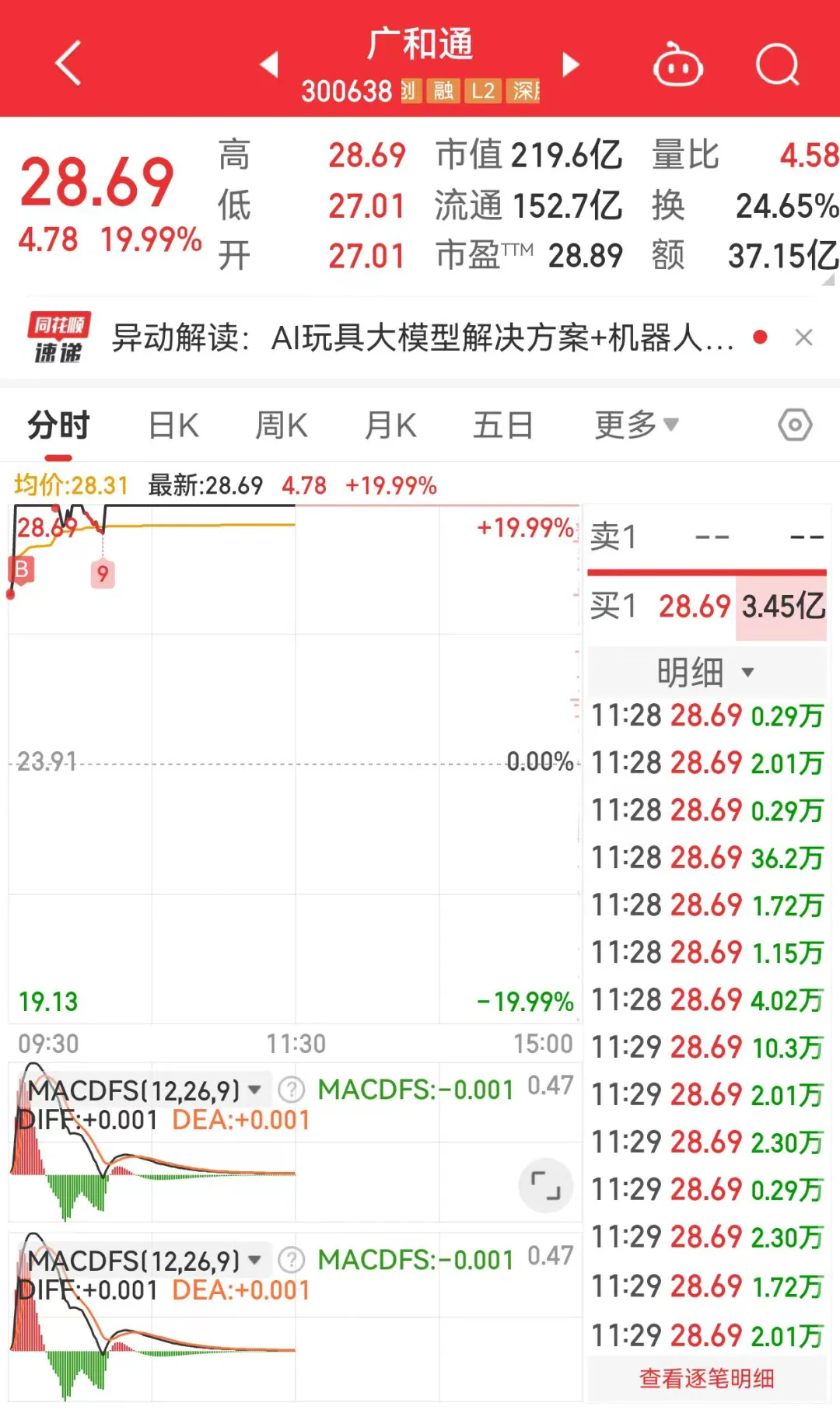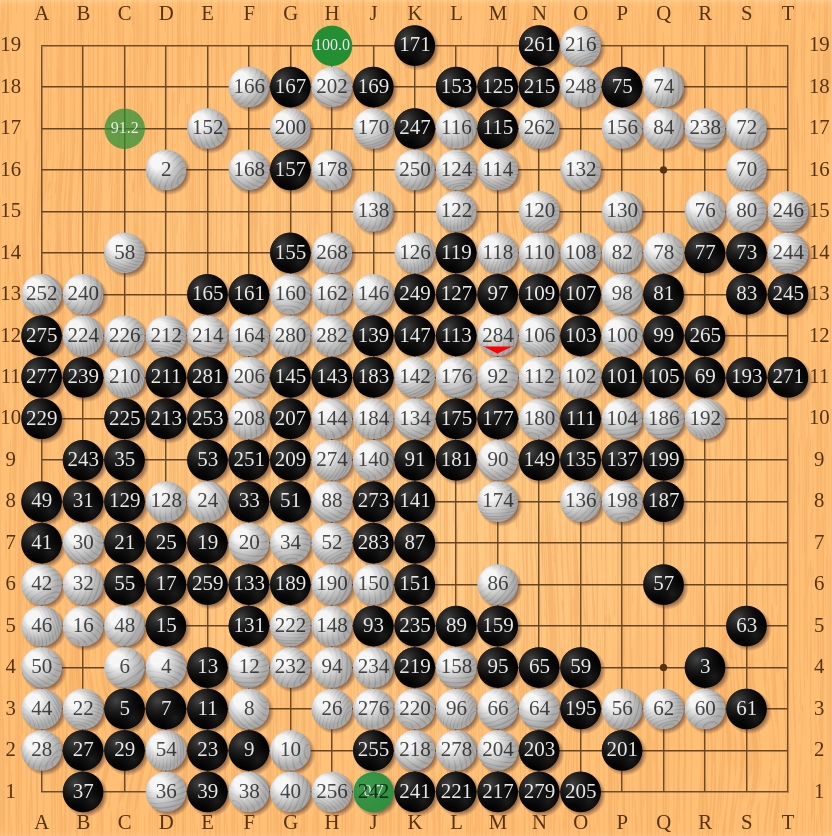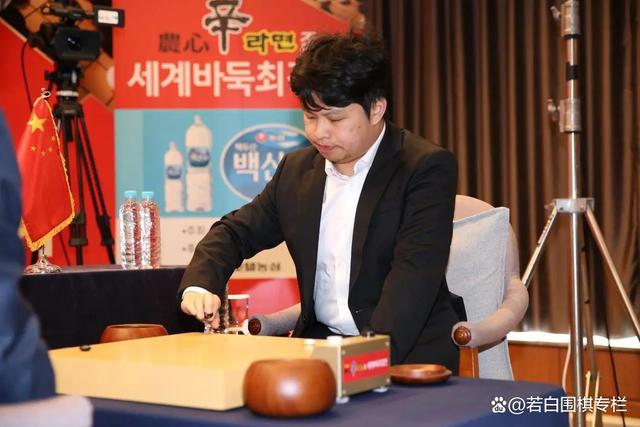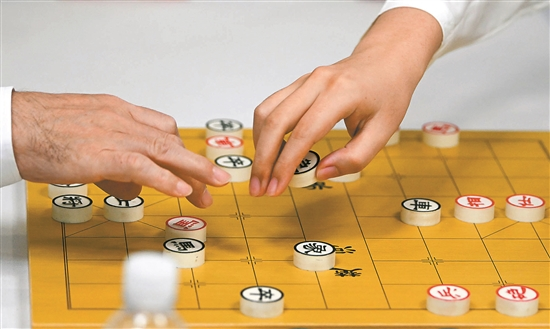The second game of the LG Cup final continued at the Korean Chess Institute, with Ke Jie facing off against Byun Sang-il. Ke Jie was judged to have lost, sparking significant controversy. The incident began when Ke Jie failed to place his piece in the chess cover after lifting it, resulting in a two-point penalty from the referee. The game progressed to the 80th move, where Ke Jie lifted another piece. South Korean player Byun Sang-il signaled to the referee, pointing out that Ke Jie had committed another violation. The South Korean side announced that Ke Jie's second lifting of a piece was in violation of the rules, and due to accumulating two violations, he was directly judged to have lost. This is also the first time in the history of the Go world championship finals that a loss has occurred due to a rule violation. Many netizens expressed their dissatisfaction, and Yu Bin, the head coach of the Chinese national Go team, strongly protested but ultimately agreed. A suspected official account of the Chinese Go Association on a certain platform's live broadcast room stated: "Rules are rules, they weren't set today." After the match, Byun Sang-il's moment of reporting Ke Jie was turned into a meme, which can be considered an unconventional divine move. Byun Sang-il's expression appears somewhat aggrieved, but in reality, he is doing the most ungracious thing. A peak confrontation match did not end because one was superior in skill, but rather due to reporting and unfamiliarity with the rules, which is indeed regrettable. Of course,…
I'm sorry, but I couldn't find the content of the article at the provided URL. Could you please provide the text or content that needs to be translated?
Unexpected Incident at LG Cup Final Second Game: Umpire and Yu Bin Rush onto the Field
On January 22, the second game of the LG Cup final between Ke Jie and Byun Sang-il took place. In the first game, Ke Jie won by 2.5 points with black stones, making it a must-win game for Byun Sang-il. The match started promptly at 9 am. Interestingly, both players continued the strategy from the first game, starting from the two opposite corners on the right top and left bottom. At move 18, Ke Jie captured one of Byun Sang-il's black stones. No one anticipated that this black stone would trigger an incident in the game. Following this, both players engaged in a fierce battle on the lower left side, playing out unusual formations. Ke Jie, lacking research on this layout, spent a long time contemplating and made a move where AI did not recommend. This led to Byun Sang-il also being unsure how to proceed due to Ke Jie's unexpected move. Various commentators felt this was a crucial moment but were unable to make a clear judgment. While everyone was focused on the game, a sudden unexpected event occurred during the live broadcast. At move 44, after Ke Jie placed his stone, there was a commotion in the scene. Upon closer inspection, it was the umpire and the Chinese team's head coach, Yu Bin, rushing into the venue. The umpire exchanged words with Ke Jie, after which both players left their seats. The board was covered with a cloth, and the game was sealed. At this point, there was no official explanation from the scene, leaving chess fans nationwide…
The title of the article in English is "January 21st Real-time Trading: A Chess Game of Multiple Parties".
This market's short-term ecosystem, at its core, resembles a chess game involving multiple parties. The activities within a chess game can be simply viewed as having three identities: "chess pieces," "chess players," and "spectators." Chess pieces are the most basic units in the game, representing the largest and most widespread group. However, sometimes they lack self-awareness and often feel good about themselves, mistakenly considering themselves as chess players and giving directions as if they were. Spectators are the variables in the chess game, with their numbers fluctuating significantly. If the game is exciting and intense, the number of spectators will sharply decrease as they join the game to become chess pieces. Conversely, if the game is dull and most people start to observe, the number of spectators increases. In this market, those who truly deserve the title of "chess player" are rare, akin to finding a phoenix among chickens or a unicorn among horses. The birth of a chess player in the "history of the chess game" can be said to occur once every ten years. It can be said that circumstances make heroes, and each hero has accomplished a "precious chess game," which becomes a well-known story and is frequently discussed by others. After gaining a simple understanding of this ecosystem, let's examine how each chess game operates. Chess pieces follow the "instincts of human nature" (system settings) and tremble without any pattern in this circle, diligently providing "ecological nutrients" 365 days a year without rest. Chess players observe the stars at night, following the periodic operation rules based…
Summary of Commentators' Reviews on LG Cup Final: Ke Jie Basically Without Mistakes, but Won Only After Byeon Sang-il Gave Two Big Gifts
On January 20th, in the first game of the LG Cup final, Ke Jie took the lead by winning by 2.5 points with black pieces against Byeon Sang-il. This game was a full-scale chaotic battle, played with tension and excitement, leaving the spectators calling it thrilling. However, it's not entirely clear how Ke Jie managed to win or where Byeon Sang-il made his mistakes, even with AI at hand. To explore this further, I have compiled comments from commentators at Yike, Yehu, and Xing Xiaomu to try to understand the game better. Yike's commentary mainly represents the AI's perspective, focusing on which moves deviated from AI recommendations and which caused a drop in win rates. There were significant mistakes such as White's move 142, dropping the win rate from 77% to 33%; Black's move 183, dropping the win rate from 91% to 62%; White's move 196, dropping the win rate from 51% to 16%; Black's move 201, dropping the win rate from 89% to 55%; and White's move 218, dropping the win rate from 59% to 0. Yehu's commentary identified three key points: the first being Byeon Sang-il's move 142, a major mistake that AI estimated to decrease the win rate by 40%-60%. Yehu believes that this move trapped all the white pieces, whereas if a different strategy had been chosen, the white pieces could have survived. The second key point is Ke Jie's move 175, where he made an incorrect choice. Yehu suggests that if Ke Jie had chosen to eliminate the upper left corner, the situation would have…
Three consecutive victories! Xie Erhao lives up to expectations, defeating Ichiryo, Kim Myung-hoon, and Shin Min-jun in the Nongshim Cup
In the ninth round of the 26th Nongshim Cup Sino-Korea-Japan Go Team Championship, Xie Erhao 9-dan successfully defended against Shin Min-jun 9-dan's challenge, achieving a remarkable three consecutive victories. During this match, Xie Erhao 9-dan played black for the third consecutive time. In the first half of the game, both players made no significant mistakes, avoiding any major confrontations, resulting in a tightly contested situation. Xie Erhao 9-dan made the first notable mistake during an intense battle in the upper right corner, where his 103rd move was considered a significant error by AI analysis, causing his win rate to plummet into the single digits. As the game entered the final stages, both players engaged in a fierce competition for small points. Despite numerous exchanges and even engaging in a large ko fight, Xie Erhao remained cautious and did not give his opponent any chance for a comeback, ultimately securing victory without much trouble. Before the match, I predicted that Xie Erhao would be able to achieve consecutive victories due to Shin Min-jun 9-dan's nickname as the "Neuroblade," known for his inconsistent play and tendency to make mistakes in the latter half of the game. The course of the match largely aligned with my expectations. The remaining lineups for the Nongshim Cup from China, Japan, and South Korea are as follows: The Chinese team still has Li Xuanhao 9-dan, Ding Hao 9-dan, and Xie Erhao 9-dan, while Fan Tingyu 9-dan and Ke Jie 9-dan have been eliminated. The Japanese team is left with only their main player, Shibano Toramaru 9-dan, and…
Asian Games Champion Zhao XinXin Involved in "Chess Selling Scandal", Transaction Price at 200,000, Has Been Detained by Police for Half a Year
Recently, the Chinese chess world has been shaken by the "Recording Gate" incident. As investigations deepen, more violators have been exposed, especially three grandmasters - Zheng Weitong, Zhao XinXin, and Wang Yang. Their lifetime bans have sent shockwaves throughout the chess community. In particular, Zheng Weitong and Zhao XinXin, two chess players who achieved brilliant results on the international stage, have found themselves mired in the mud of their careers due to their involvement in the "buying and selling of chess games" scandal. Zheng Weitong, the 30-year-old world champion, was widely recognized for his superb chess skills and tenacity. He was not only a genius in the chess world but also excelled in many competitions, winning titles such as the Asian Championship and World Championship. However, shockingly, his career came to an abrupt end in the "Recording Gate" incident. Although Zheng Weitong initially denied engaging in the buying and selling of chess games, he eventually had to admit that he did participate in this scandal. The amount involved was not huge, but it was enough to destroy his entire career. His past glory faded instantly under the shadow of the "Recording Gate" incident. Zhao XinXin is another beloved chess player among fans. At just 36 years old, he won the title of China's fifth world chess king. Zhao XinXin's chess skills are universally acknowledged as top-notch, and he won the World Championship in 2018 and the Asian Championship in 2023, representing the "golden age" of Chinese chess. However, behind his success lies a heartbreaking story - long-term involvement in "selling…
In 2024, a shocking scandal rocked the world of Chinese chess known as "Xiangqi" - the "Recording Gate" incident. This involved a series of top-ranked chess players engaging in "buying and selling games." Not only did this scandal tarnish the reputations of many top players, but it also plunged the entire Chinese chess community into an unprecedented trust crisis. The severity of the scandal was such that CCTV dedicated 20 minutes of prime time to report on it. The incident began with inappropriate remarks made during live streams. On March 15, 2023, Grandmaster Wang Tianyi and Hao Jichao conducted live streams in their respective channels. Hao Jichao, known by the nickname "Good Technician," often mentioned his experiences at bathhouses during his live streams. When Wang Tianyi's channel mentioned Hao Jichao, Wang jokingly referred to him as "Good Technician." In response, Hao Jichao offered to provide services for Wang Tianyi's girlfriend, Yue Lejin. This jest led to a wave of online mockery, prompting Yue Lejin, who was both Wang's girlfriend and assistant, to report the incident to the police. Subsequently, the Chinese Chess Institute imposed a one-year suspension on Hao Jichao. This punishment fueled Hao's resentment towards Wang Tianyi, setting the stage for the subsequent "Recording Gate" incident. The scandal escalated when recordings were exposed. Hao Jichao, who had close ties with another player Zhu Hongzhi, began plotting to expose Wang Tianyi's recordings under Zhu's direction in July 2023. Initially, Hao used the video account of Jiang Zhiqiang, the president of the Shanxi Chess Association and Zhu's associate, to release the…
Chess Black Market Exposed! Large Cash Flows in the Venue, Teams Raise Funds to Buy Chess Pieces and Manipulate Match Results
Recently, a shocking scandal has rocked the world of Chinese chess. An investigation by the General Administration of Sport has uncovered a significant number of "buy-sell chess" incidents on the chessboard. Simply put, some players deliberately concede or throw matches for their own benefit, even going so far as to "pre-arrange" the outcome of games. This incident has not only disappointed many chess enthusiasts but also raised doubts about the fairness of the entire sports industry. The exposure of this event reveals that it is actually "black money transactions" behind the scenes. "Buy-sell chess" sounds like a plot from a novel, but it is indeed happening on our real-life chessboards. Since 2012, with the increasing professionalization of chess, more and more players have joined the industry. However, no one expected that as the number of competitions increased, the transactions behind the scenes would become increasingly rampant. The "main characters" of the buy-sell chess are no longer just the games themselves, but the players who have undisclosed agreements and interest chains behind them. The investigation shows that some players reach a "tacit understanding" with their opponents before the game: I let you win, and you let me win. These transactions are often related to bonuses, rankings, and promotions. After all, the prize money for chess is not generous, and many players' incomes are not enough to cover living expenses. To maintain their careers, even some well-known players have begun to "trade" match results behind the scenes. In the past, we always thought of chess matches as serious and full of wisdom,…
The Truth Behind Xu Yinchuan's Retirement at 39 Exposed! Chinese Chess Turns into a "Business Arena", Chilling to the Heart!
On January 12, 2025, an important meeting was held in Beijing to discuss issues related to sportsmanship and discipline in the world of Chinese chess. At this meeting, the Card and Chess Sports Management Center announced disciplinary actions against 41 Chinese chess players. This news has caused a significant stir within the Chinese chess community and the entire sports industry. Back in September 2024, Wang Tianyi and Wang Yuefei were already penalized for improper behavior, but this latest incident, involving a larger number of individuals with far-reaching consequences, is truly shocking. Chinese chess, with its profound cultural heritage as a national treasure, has unfortunately become embroiled in such scandal, which is both regrettable and heart-wrenching. Do you still remember Xu Yinchuan, known as the "Young Jiang Taigong"? In 2014, at the peak of his career at only 39 years old, he suddenly announced his retirement from the world of Chinese chess. This decision shocked many fans at the time, leaving them puzzled. Over a decade has passed, and Xu Yinchuan has never revealed the true reason behind his retirement. However, it now seems that we are beginning to understand why he made such a decisive choice. When Chinese chess competitions have turned into arenas where players engage in improper means to buy and sell rankings, disregarding the principle of fair competition, Xu Yinchuan's decision to leave may have been a wise one. It is speculated by some fans that at least ten people approached Xu Yinchuan to sell him chess games, which he sternly rejected. Ultimately, he chose to retire…
